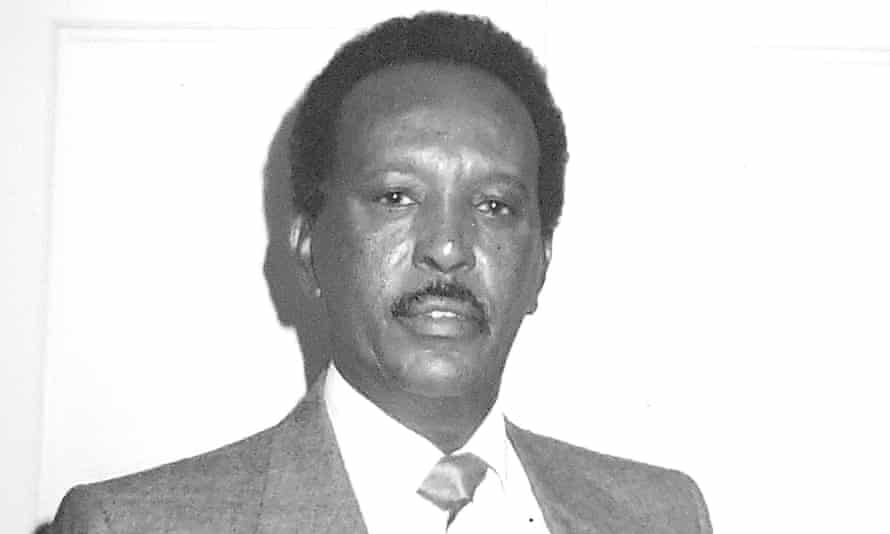Ismail Ahmed Ismail obituary

My father, Ismail Ahmed Ismail, who has died aged 94, was the founding commander of the Custodial Corps of Somalia, overseeing the country’s prison system. From 1970 to 1988 he expanded the corps from a force of 1,500 men and women to around 12,000. They were responsible for the security, supervision and management of penal institutions in the republic, including special units and a series of schools for homeless young people.
Ismail was born near Erigabo, in the British Somaliland Protectorate. His father, Ahmed Ismail, was a policeman in Aden, Yemen, and Jubaland territory under the British East Africa administration. He later became a head clerk in the port of Aden. Ismail’s mother, Halwo Mohamoud, was a multi-linguist from Aden. She ran a successful business trading spices, food and clothes between the region’s Red Sea coastal towns and Yemen.
One of 14 siblings from his father’s four marriages, Ismail’s early-age schooling was in Erigabo, but at the age of seven he was sent to Aden for further education, there being no proper education system in Somaliland at the time.
On leaving school in 1948, he returned to the British Somaliland Protectorate, where he joined the civil service as a junior clerk — the highest ranking position the government offered to Somalis. In 1954 the protectorate administration sent him to England to train at the police and prisons college in Wakefield, Yorkshire. On his return to Somalia he became a prison officer, progressing through the ranks and reaching the top of the scale through the required academic examinations. He then joined the police force as an officer.
In 1960, when the British administration ended in Somaliland, he was appointed commissioner of prisons in the newly independent Somali Republic, with the rank of major general, in charge of the entire prisons service. In that role and through his ranks after becoming a major general, he was instrumental in integrating Somalia’s and Somaliland’s prison systems at a time when the prisons operated with two different judicial systems.
In 1988 he became a political adviser to the country’s then president, Siad Barre, which he regarded as a disappointing demotion, having left his professional service. After 1991, when Somalia had ceased to function as a viable state, he emigrated to the US, and led a quieter life of retirement in Greensboro, North Carolina, until in 2018 he went back to Somalia, where he died in Mogadishu.
A humble and compassionate man, he enjoyed life to the full, and even in his senior years loved playing tennis and golf.
He is survived by his wife, Khadija Ibrahim, 12 children from four marriages, and by 11 grandchildren. Two other children predeceased him.
… we have a small favour to ask. Through these turbulent and challenging times, millions rely on the Guardian for independent journalism that stands for truth and integrity. Readers chose to support us financially more than 1.5 million times in 2020, joining existing supporters in 180 countries.
With your help, we will continue to provide high-impact reporting that can counter misinformation and offer an authoritative, trustworthy source of news for everyone. With no shareholders or billionaire owner, we set our own agenda and provide truth-seeking journalism that’s free from commercial and political influence. When it’s never mattered more, we can investigate and challenge without fear or favour.
Unlike many others, we have maintained our choice: to keep Guardian journalism open for all readers, regardless of where they live or what they can afford to pay. We do this because we believe in information equality, where everyone deserves to read accurate news and thoughtful analysis. Greater numbers of people are staying well-informed on world events, and being inspired to take meaningful action.
We aim to offer readers a comprehensive, international perspective on critical events shaping our world – from the Black Lives Matter movement, to the new American administration, Brexit, and the world’s slow emergence from a global pandemic. We are committed to upholding our reputation for urgent, powerful reporting on the climate emergency, and made the decision to reject advertising from fossil fuel companies, divest from the oil and gas industries, and set a course to achieve net zero emissions by 2030.
If there were ever a time to join us, it is now. You can power Guardian journalism and help sustain our future.
Source theguardian













